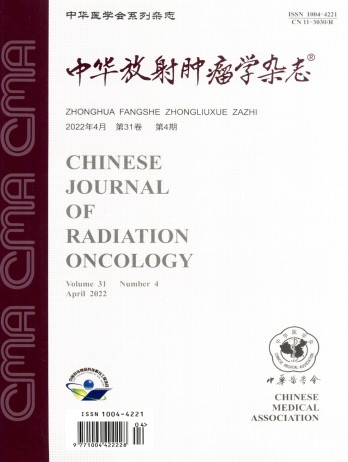Short-course versus long-course neoadjuvant radiotherapy combined with delayed surgery for locally advanced rectal cancer: a Meta-analysis
引用次数: 0
Abstract
Objective Short-course neoadjuvant radiotherapy (SCRT) combined with delayed surgery seems to be safer than SCRT in combination with immediate surgery. However, the clinical efficacy between SCRT and long-course neoadjuvant radiotherapy (LCRT) combined with delayed surgery has not been compared. Therefore, this meta-analysis was performed to compare the safety and efficacy between SCRT and LCRT followed by delayed surgery in patients with locally advanced rectal cancer. Methods Relevant literatures were searched using relevant databases. Baseline characteristics and treatment results of patients were extracted. The included studies were subject to bias risk assessment. Evidence assessment and data analysis were conducted. Results A total of 7 studies with 4967 patients were included. Meta-analysis results illustrated no statistical significance between two groups in terms of sphincter preservation rate, R0 resection rate, postoperative complications, local recurrence rate (LRR), distant metastasis, recurrence-free survival (RFS), overall survival (OS), length of hospital stay and acute radiotherapy toxicity (all P>0.05). Compared with SCRT with delayed surgery, LCRT with delayed surgery was associated with a significant increase in the tumor downstaging rate (RR=0.84, 95%CI=0.76-0.93, P<0.05) and a considerable increase in pathologically complete remission rate (RR=0.46, 95%CI=0.34-0.61, P<0.05). Conclusions SCRT with delayed surgery is as effective as LCRT with delayed surgery in terms of sphincter preservation rate, R0 resection rate, postoperative complications, LRR, RFS, OS, grade Ⅲ-Ⅳ acute toxicity and length of hospital stay. However, LCRT in combination with delayed surgery enhances the tumor downstaging rate and pathologically complete remission rate. Key words: Rectal neoplasm/neoadjuvant radiotherapy; Rectal neoplasm/surgery; Meta-analysis局部晚期癌症短程与长程新辅助放疗联合延迟手术的Meta-analysis
目的短期新辅助放疗(SCRT)联合延迟手术治疗似乎比SCRT联合立即手术治疗更安全。然而,SCRT与长疗程新辅助放疗(LCRT)联合延迟手术的临床疗效尚未比较。因此,本荟萃分析比较局部晚期直肠癌患者SCRT和LCRT后延迟手术的安全性和有效性。方法利用相关数据库检索相关文献。提取患者的基线特征和治疗结果。纳入的研究需进行偏倚风险评估。进行证据评估和数据分析。结果共纳入7项研究,4967例患者。meta分析结果显示,两组患者在括约肌保管率、R0切除率、术后并发症、局部复发率(LRR)、远处转移、无复发生存期(RFS)、总生存期(OS)、住院时间、急性放疗毒性等方面差异均无统计学意义(P < 0.05)。与延迟手术的SCRT相比,延迟手术的LCRT肿瘤降期率显著升高(RR=0.84, 95%CI=0.76 ~ 0.93, P<0.05),病理完全缓解率显著升高(RR=0.46, 95%CI=0.34 ~ 0.61, P<0.05)。结论SCRT延迟手术与LCRT延迟手术在括约肌保存率、R0切除率、术后并发症、LRR、RFS、OS、Ⅲ-Ⅳ急性毒性分级、住院时间等方面均具有同等疗效。然而,LCRT联合延迟手术可提高肿瘤降期率和病理完全缓解率。关键词:直肠肿瘤/新辅助放疗;直肠肿瘤/手术;荟萃分析
本文章由计算机程序翻译,如有差异,请以英文原文为准。
求助全文
约1分钟内获得全文
求助全文
来源期刊
自引率
0.00%
发文量
6375
期刊介绍:
The Chinese Journal of Radiation Oncology is a national academic journal sponsored by the Chinese Medical Association. It was founded in 1992 and the title was written by Chen Minzhang, the former Minister of Health. Its predecessor was the Chinese Journal of Radiation Oncology, which was founded in 1987. The journal is an authoritative journal in the field of radiation oncology in my country. It focuses on clinical tumor radiotherapy, tumor radiation physics, tumor radiation biology, and thermal therapy. Its main readers are middle and senior clinical doctors and scientific researchers. It is now a monthly journal with a large 16-page format and 80 pages of text. For many years, it has adhered to the principle of combining theory with practice and combining improvement with popularization. It now has columns such as monographs, head and neck tumors (monographs), chest tumors (monographs), abdominal tumors (monographs), physics, technology, biology (monographs), reviews, and investigations and research.

 求助内容:
求助内容: 应助结果提醒方式:
应助结果提醒方式:


